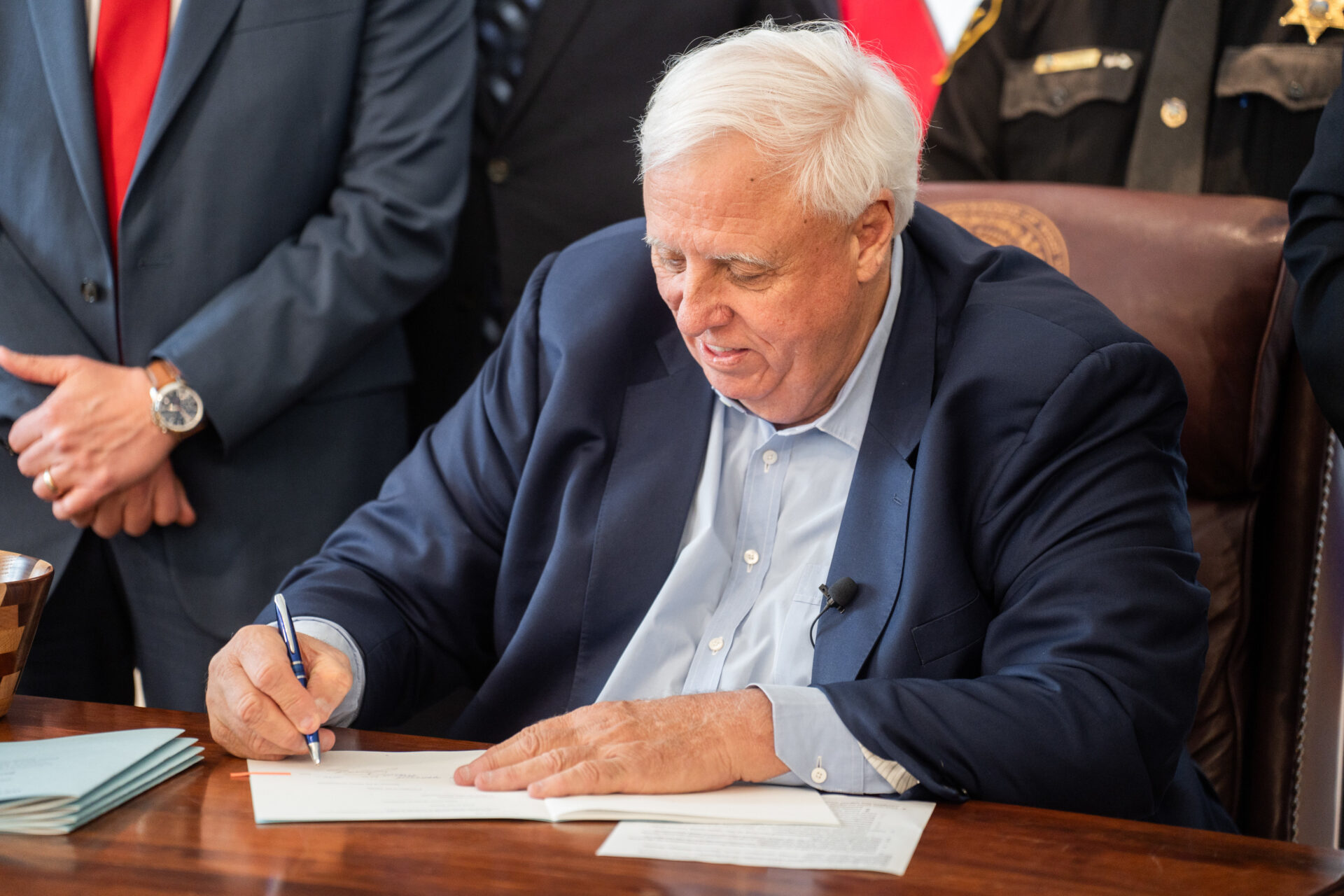For weeks, Gov. Jim Justice has indicated his desire for the legislature to return for its second special session of the year in order to implement further cuts to the state’s personal income tax.
Justice signed a law in 2023 that slashed income tax by more than 20 percent. The law also provided a mechanism for additional tax cuts once the state revenue surpassed its total from 2019, which has already resulted in a 4 percent cut this year.
“The bottom line to this state is there is nothing that will drive population to this state any greater than cutting the personal income tax,” Justice said. “It’s the people’s money. For crying out loud on top of that, we’ve got $826.6 million in surplus now but in addition to that we’ve got $400 (million) plus interest money in the reserve fund for the personal income tax that’s sitting there on top of that, and a billion plus dollars in a rainy day fund.”
He touted a state map from the Tax Foundation that showed West Virginia ranked 19th in the nation for inbound population migration. The Tax Foundation is an international research think tank based in Washington, D.C., that collects data and publishes research studies on U.S. tax policies.
Justice stated that the states on the map with the highest population growth don’t have a state income tax or are on the way to getting rid of their state income tax. He said that was part of his motivation to ask the legislature for a further five percent cut to the state’s personal income tax on top of the four percent triggered earlier this year.
“There’s no driver on the planet that’s gonna be better than that,” Justice said. “I hope that you will ring and absolutely urge them to pass that dollar that those monies on to you when we call him back into session.”
The timeline for the session will be mid to late August, but Justice conceded it could be pushed back a little further.
When asked if any other issues would be included in the special session call at his regular press briefing Thursday, the governor reiterated that beyond seeing former President Donald Trump elected in November, cutting the personal income tax is his top priority.
Appearance At RNC
The governor started the briefing by going over his presentation at the Republican National Convention Tuesday night. He said he crafted his speech not as a political statement but rather in order to talk about what he called “the bottom line to the whole everything that’s going on in this country.”
“The bottom line to one thing is exactly what I’ve said so many times: If we continue on the pathway for four more years that we’re on right now, I don’t know what’s gonna happen to this country,” Justice said. “Therefore, I think we’ve got to elect Donald Trump hands down. That’s the bottom line.”
Justice repeated his belief that “we become completely unhinged as a nation if Donald Trump doesn’t win,” a statement that has drawn criticism from those that perceive it as a possible call to violence.
Babydog’s Painting
Justice was joined on the RNC stage by Babydog, to the delight of the national audience. On Thursday he was asked about a possible lawsuit for misappropriation of state funds after the image of an English bulldog was included in recently revealed historic murals in the Capitol rotunda.
He replied by saying he would not comment on pending litigation, but that he was not consulted on the choice.
“From what I understand the artist said he felt like a dog ought to be in the thing,” Justice said. “And then folks said, ‘Well, look, I don’t know how in the world we can have anything better than maybe one of Babydog’s descendants’ and everything. So that’s how it came into being. I mean, give me a break.”
Watch the full briefing here:
